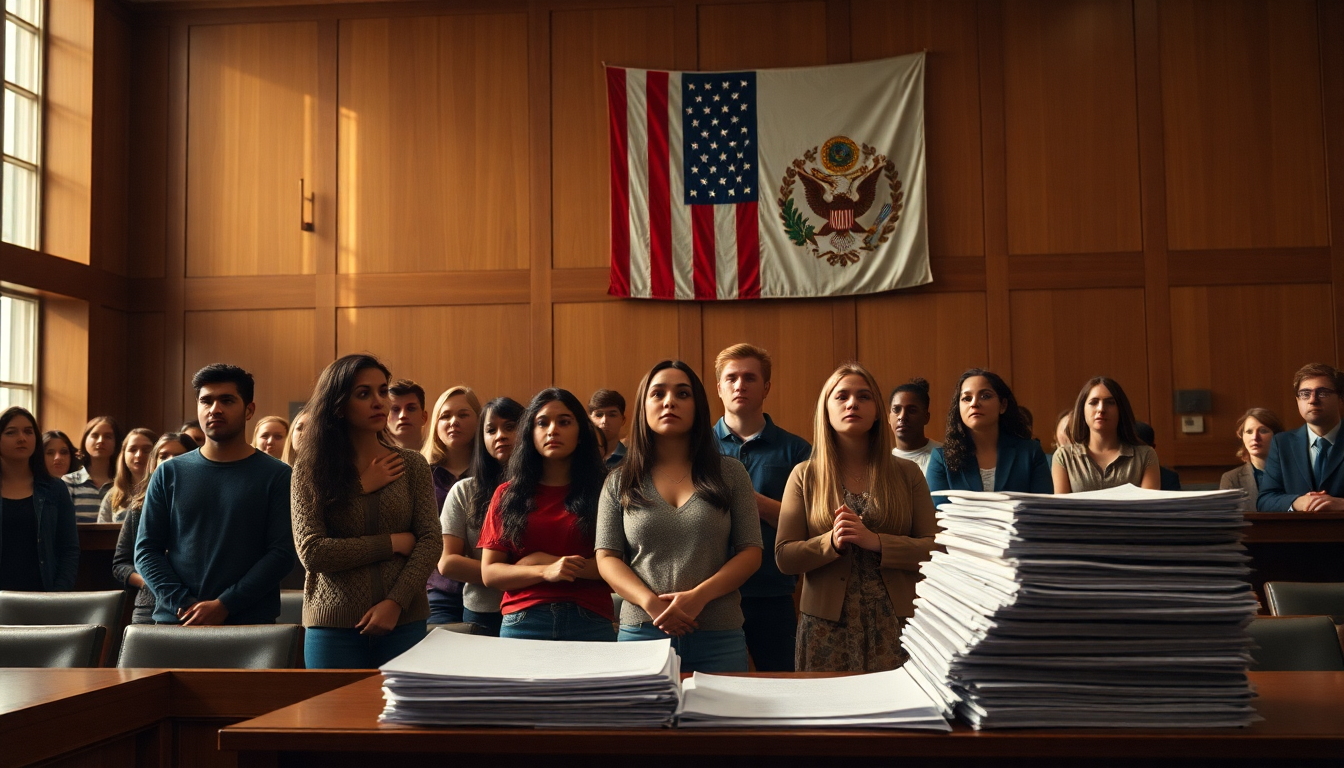Table of Contents
Imagine being yanked from your cozy student life and thrown into an immigration nightmare because you dared to speak your mind. Welcome to Mahmoud Khalil’s world, where the Trump administration’s idea of ‘freedom’ means silencing pro-Palestine voices with the same grace as a bull in a china shop. A federal judge in New Jersey has intervened, but not without leaving the audience on the edge of their seats, waiting to see if this will be a moment of justice or just another chapter in the saga of political absurdity.
The case against Khalil: A twisted narrative
So, let’s break it down. Khalil, a Columbia University student, was arrested under the pretense that his advocacy could potentially harm U.S. foreign policy. As if simply having an opinion on Palestine makes you a criminal! The judge, Michael Farbiarz, had the audacity to challenge this outdated notion, stating that the government couldn’t just pluck Khalil from his life based on some vague legal mumbo jumbo from 1952. Who knew that the ghosts of the past could haunt the present in such a ridiculous manner?
But wait, the drama thickens! While the judge has ruled that Khalil’s detention violates his right to free speech, don’t pop the champagne just yet. The ruling doesn’t guarantee his immediate release. Instead, it gives the Trump administration a deadline to respond—like a bad reality show where you know the outcome is just going to get messier. After this, Khalil could be released on a measly $1 bail. Yes, you read that right: one buck. It’s almost as if the government thinks it can buy justice with pocket change.
The absurdity of political correctness
Now, let’s talk about the accusations thrown at Khalil. Anti-Semitism? Supporting Hamas? Where’s the proof? Just a wild claim thrown around to intimidate dissenters. It’s a classic case of political correctness gone haywire, where any voice that dares to disagree becomes a target. The administration’s strategy seems to be: if you can’t dazzle them with facts, baffle them with bullshit.
It’s not just Khalil, either. Other students have faced similar fates, all for the noble act of standing up for what they believe. And here we are, in a world where political leaders can weaponize accusations without any substantial evidence. If that’s not a red flag, what is? Are we really so afraid of differing opinions that we have to resort to these extreme measures? It’s almost laughable, if it weren’t so tragic.
The legal circus and its implications
Khalil’s fight isn’t just a personal battle; it’s a reflection of a larger issue at play. As he challenges his deportation in immigration court, he’s also fighting the legal system that seems to be rigged against him. The habeas corpus petition he filed isn’t just a fancy term; it’s a lifeline. It argues that the Trump administration’s grip on his freedom is not just questionable but downright unlawful.
In the grand scheme of things, it raises serious questions about the integrity of the immigration system in the U.S. Are we really okay with a system that scrambles to silence individuals based on their beliefs? Or have we just become complacent in our own apathy? Khalil’s case is a stark reminder that civil liberties are fragile. We can’t afford to take them for granted, especially when they’re being trampled on in the name of ‘national security’ or whatever buzzword makes the headlines.
A farcical ending with a hint of reality
As the judge waits for the administration’s next move, it feels like we’re all part of a grand farce. Will they challenge his ruling or will they back down? Either way, the implications are enormous. Khalil’s experience underscores a chilling truth: when free speech is compromised, we all lose. So, as we sit back and watch this soap opera unfold, perhaps it’s time to reflect on where we stand. Are we prepared to speak up, or will we remain quiet, hoping that the storm will pass us by? The clock is ticking, folks, and the outcome of this circus could reshape the narrative of dissent in America.


